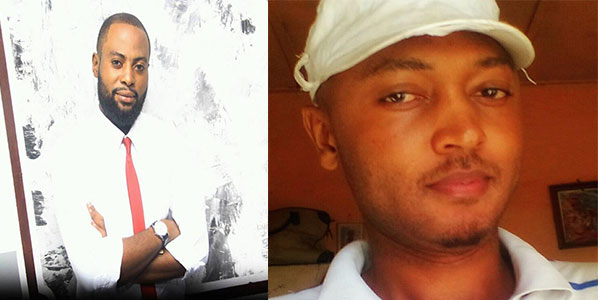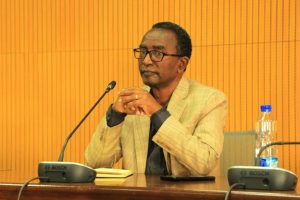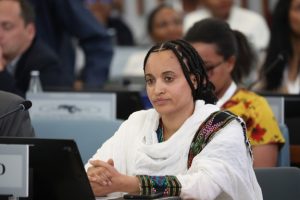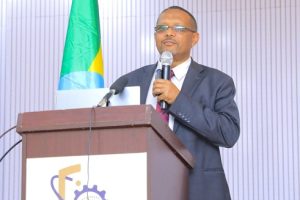
Ethiopia has been experiencing elephantine political changes since Prime Minister Abiy Ahmed took office eight months ago.
The highly reformist Premierhas mounted relentless assault against those who have been committing corruption and human right abuses. Moreover, his administration is tirelessly working to sustain the reform, vital for enhancing democratization and ensuring rule of law. However, hurdles of every making crop up to hamper the reform.
What does the ongoing reform mean to Ethiopia? What has the reform brought in its wake to the nation so far? How decisive is transforming the country politically and economically? The radical reform being implemented by Prime Minister Abiy Ahmed would be taken as ‘‘make it or break it’’ reform for Ehiopia, a nation having more than 100 million people and the second populous in Africa, according to scholars.
The ongoing change would have huge impact in deciding the future of the nation, in enhancing democratization and ensuring rule of law, Oromia State University Lecturer, Bekele Lemma, tells The Ethiopian Herald. ‘‘In my opinion, the change afoot in the country is a ‘‘make it or break it’’ one. It could make the country take a turn for the better if it is implemented properly and it would coerce it lapse into chaos if citizens fail to accord it support knowing full well that it is a panacea for the country emerging out of an undemocratic culture.
We have been witnessing some to dos which attend political changes. Such tragedies must be forestalled since they are undemocratic and divorced from the constitutional provisions,’’ he said. Adding: ‘‘Everything has its own limit. The reformed government being led by Prime Minister Abiy Ahmed has been handling things with a cool head to the extent of teaching the public what a genuine democracy and liberty means.
But, if some elements that clamor for their rights lurk to curtail that of others, the government is on duty bound to take measures, which could safeguard the constitution and rule of law.’’ He adds that instability which is rummaging some corners of the country are frictions to the change and this would not spiral out of control if the government starts taking swift measures. ‘‘The government looks more soft on those who lost the grip of untrammelled power.It is they that are being suspected of orchestrating violence in different parts of the country. It is a public knowledge that these bodies are financing and mobilizing antipeace individuals to strangulate the ongoing changes.
Hence, they should be combed out before they foment unrest,they lavish to fuel day and night,’’ he argues. As far as creating harmony and peaceful co-existence, the government, nongovernment organizations and media should strive in creating consensus among Nations, Nationalities and Peoples of Ethiopia, Bekele stresses. Government structures at the lower administrative echelon have pivotal role in consolidating the change afoot in the country.
They could be responsible for good or bad. Political Analyst and Lecturer at Mekelle University, Tilahun Amsalu stresses that the government should render structures at the Woreda and Kebele levels vibrant. ‘‘The previous regime has been maneuvering the public through various controlling mechanisms. Their cadres have tentacles in every family not to mention in government offices. Hence, the task of reforming the lower level of government should not be deferred for tomorrow,’’ he notes.
As to him, the opposition political parties have crucial role in sustaining the change through ensuring peace and stability. ‘‘If we want to build a genuine democratic system, we have to deliberate long to iron out our differences. We have to realize that public power should be maintained by ballot not by bullet. From our long history,we have a firsthand account of the devastation civil war carries on its back,’’ Tilahun reaffirms, adding: ‘‘Ethiopians should learn to embrace a democratic culture.
They should be cognizant that this reform would have colossal impact on their life and the future of the nation. They have to tend the change to render the future promising.’’ Prime Minister Abiy Ahmed has an open heart and clear vision for reconciliation and forgiveness. Pardoning political prisoners and forgiving wrongdoers are living billboards of the Premier’s devotion for nation’s peace, harmony and national consensus.
This sets him peculiar from his predecessors. He has set a national reconciliation committee, which could settle disputes and ensure lasting peace. Dawit Mehari, Lecturer at Addis Ababa University, Institute of Peace and Security Studies highlights the Premier’s willingness to ensure national consensus, which is vital for consolidating the ongoing change. ‘‘Prime Minister Abiy would be noted as role model of peace, reconciliation and forgiveness.
He has pardoned everyone as soon as he took office,’’ he states. ‘‘But, instead of using the golden opportunity being offered by the Prime Minister Abiy for all Ethiopians, the birdbrained are rather abusing the opportunity. They are taking advantage of the premier’s tolerance and forgiveness.They want to push him to the end of his limit. This should be redressed as soon as possible.’’ Also, the lecturer has urged the government to take necessary measures on those political groups,after suffering cold shoulders for decades,who entered into the nation as part of the government’s goodwill, but kept themselves busy in instigating violence in some parts of the country.
Despite some challenges which could occur during political changes, Ethiopia is transforming itself into a democratic political system. Transparency, accountability, freedom of speech and entertainment of political outlook without fear are being guaranteed by the devotion and commitment of Prime Minister Abiy Ahmed.
Hence, the public should work hand-in-hand with prochange forces to consolidate the continuing reform. If so, Ethiopia would be noted as one of the democratic and prosperous nations in Africa and Prime Minister would be remembered by generations to come as the first Ethiopian leader who led the nation to a genuine democracy.
The Ethiopian Herald, January 13/2019
BY TSEGAY HAGOS




